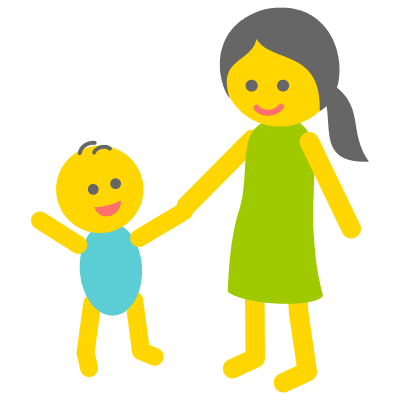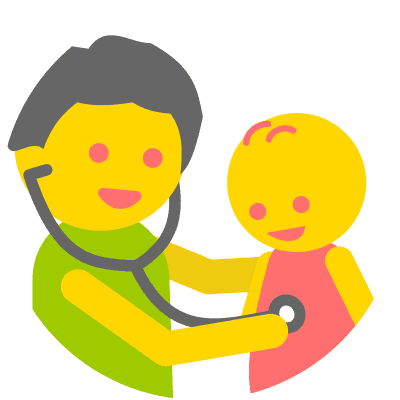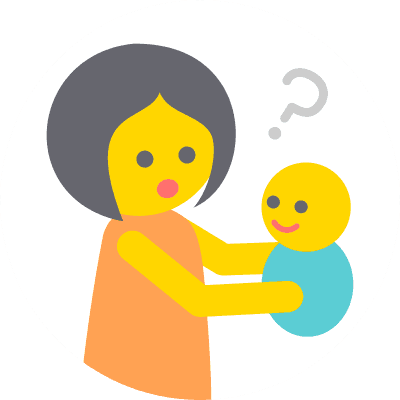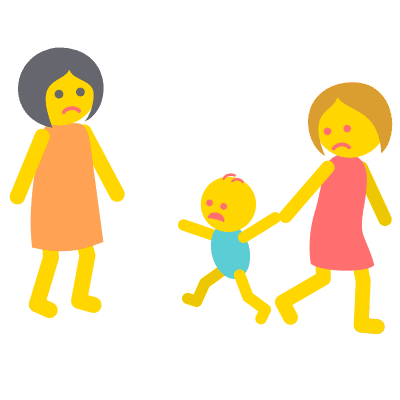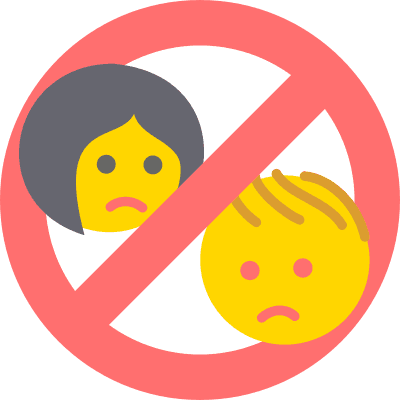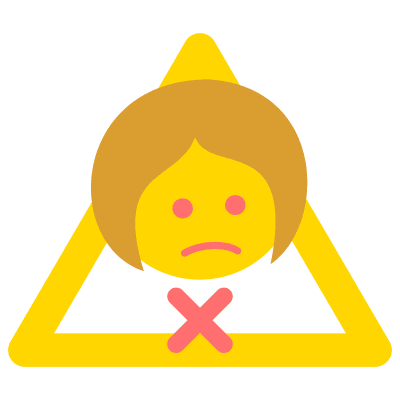At What Age Does Your Child Stop Needing a Babysitter? (Maturity Guide)


Written & Illustrated by
Matthew James Taylor
Kidsit Founder, General Manager

Medically Reviewed by
Gina Maria Jansheski, MD, FAAP
Board-Certified Pediatrician, Medical Reviewer
Key Takeaways
- There's no universal age when all children stop needing a babysitter. Maturity varies widely among kids, and readiness depends on individual development rather than a specific age.
- Some children are ready to stay home alone for short periods around ages 10 or 11, typically during the day. By ages 12 or 13, they might handle short evening periods alone, provided they've had prior experience during the day.
- Signs of readiness include the ability to follow rules, make good decisions, handle emergencies calmly, and demonstrate responsibility and maturity.
- Before leaving your child home alone, ensure they know emergency contact numbers, how to reach trusted adults, basic food preparation, and how to clean up after themselves.
- Always consider your child's confidence and comfort level. Never leave them alone if they feel scared or are not ready.
As a parent, I know it can be hard to decide when your little baby (what used to be!) is finally ready to stay home without a sitter. What happens if something goes wrong? And how do you know that it's not too early?
Some children are mature enough at 10 or 11 years old to be left alone for short periods of time (typically under an hour) and only during the day. By 12 or 13 years you can introduce short times at night and longer times during the day. Never leave a child alone if they are scared or not confident.
In this article, we will discuss what age kids stop needing a babysitter, how to know they're ready to be left alone, and information and tools to leave them with.
What Age Do Kids Stop Needing Their Babysitter?
As a nervous first-time parent, your answer to this question might be when they're 18 and move off to university! But both you and your child know that isn't very realistic.
Unfortunately, there's no magic age where all children instantly become responsible and mature.
Some kids are willing and able to be left alone at age 10 or 11. Others might be teenagers before either they or you feel comfortable leaving them unsupervised for long periods of time.
What Does The Law Say?
The laws regarding leaving your child alone can vary a lot, depending on where you live. Some places only give suggested ages, while others have firm limits in place. There are also differences in how long you can leave your child alone, and whether it is permitted during the day or at night.
Rather than list the specifics for each country and state here, I'd recommend doing a quick Google search yourself to confirm by searching something like "legal age to leave a child alone (your country or state/province)."
What Do Experts Say?
Most child experts think it's okay to start leaving your kid alone for short periods of time around age 10 or 11, beginning with less than an hour at a time and only during the day.
At ages 12 or 13, it might be okay to start leaving your child alone after dark if they've had previous experience being home alone during the daytime. You shouldn't leave them alone all night at that age, but they should be fine if you need to go out for a few hours in the evening.
Of course, there's the caveat that you should feel they're mature enough to handle it and won't be scared or irresponsible.
Signs of Maturity That Show Your Child Is Ready To Stay Home Alone
Before you consider leaving your child home unattended, you should make sure they:
- Can and do follow rules.
- Can make good decisions.
- Are responsible.
- Are mature.
- Can handle authority without abusing it.
- Can handle any potential problems or emergencies in a calm and responsible manner.
- Have had first aid or CPR training (optional, but good, especially if they're looking after a younger sibling.)
Things Your Kids Need To Know
In addition to your child being mentally ready to be left home alone, there's some critical knowledge that you'll need to share with them.
They should know emergency numbers. Your child should know 911, 999, 000, or whatever your country's emergency number is to contact fire, ambulance, and police (see emergency numbers for your country). They also need to know when it's appropriate to call and when it isn't, and what information (like your home address and nearest cross street) they would need to share with the dispatcher.
They should know how to get help if they need it. They should have a way to reach your family, friends, or a neighbor they can trust if they run into any problems they're unable to solve themselves (like if your basement starts flooding).
They can prepare food for themselves if they get hungry. They should be able to put together simple snacks, prepare basic meals like sandwiches, or reheat leftovers in the microwave. They also need to be responsible enough to not eat an entire block of cheese, or container of whipped cream or cookies while you're out!
They know how to clean up a mess. Accidents happen, but it's important that your child can deal with it on their own, as opposed to just letting orange soda soak into your carpet for three hours until you get home.
They know how to follow the rules - and DO. They need to follow the same rules that would be expected of them when a parent is around. For example, no friends over without permission, no wrestling, limits on TV or video games, getting to bed on time, etc.
Information To Leave For Your Child When They're Home Alone
You should have a basic list with all of your emergency numbers in one place that's easy for your kid to find and access, for example, stuck on the refrigerator.
Include emergency phone numbers like:
- Your cell phone.
- Nearby family members.
- Neighbors you trust.
- Your family doctor.
- Poison help number (see below).
- Your national emergency number (see below).
- Your vet if you have pets.
National Emergency Numbers
| Country | Emergency number |
|---|---|
| United States | 911 |
| Canada | 911 |
| United Kingdom | 999 |
| Australia | 000 |
| New Zealand | 111 |
Poison Help Numbers
| Country | Poison help number |
|---|---|
| United States | 1-800-222-1222 |
| Canada | 1-800-268-9017 |
| United Kingdom | 111 |
| Australia | 13 11 26 |
| New Zealand | 0800 764 766 |
They need a phone. Don't forget to give them a way to phone as well. Nowadays, more and more homes don't have a landline. If that's true of your home, you'll need to leave them a cheap prepaid emergency phone they can use while you’re out.
They need emergency plans. For example, what will they do in case of a power outage, fire, or severe weather? Be sure to have flashlights and fire extinguishers around your house in easy-to-find places, as well as a first-aid kit stocked with bandaids, disinfectant, and other medical supplies. Go through it with them once, then test them later to make sure they can remember in an emergency.
Help Your Kid Stay Out of Trouble
There are basic precautions you should take to prevent your kid from making bad decisions and giving in to curiosity or temptation.
Set up parental filters on your computer and TV to make sure they can't access any material that you deem inappropriate for them.
Lock up anything you don't want them to get ahold of as well. Pay special attention to things like alcohol, prescription medications, cigarettes, weapons (which should be locked up anyway), and lighters.
What If You Have Multiple Kids?
What happens if you've got two children, for example, a 12-year-old and an 8-year-old?
Your 12-year-old is mature enough to leave home alone. But you'd never leave your 8-year-old by themselves.
Will they be okay together? In most cases, yes. Again this will come down to maturity in the older child. Someone needs to be in charge, so they'll need to take on the role of babysitter to keep the younger child under control.
Some younger siblings are really good at taking orders from their big brother or sister. While other children feed off each other and can quickly get out of control or become antagonistic toward each other. If your kids are the latter type, you might want to wait an extra year or two before leaving them alone together.
Start Small
You're setting your child up for failure if you go from a lifetime of full supervision to leaving them alone for an entire day.
Start with trial runs where you only leave your child alone for 30 minutes to an hour while you run to get groceries. If the house is still standing after your first few times, you can start gradually increasing the time you're away.
Your child should understand that being able to stay home alone is a privilege. They need to earn that privilege by showing they can be safe and reliable.
Day vs. Night
There's a big psychological difference for your child when it comes to being home alone at night compared to during the day. They might be perfectly fine to take care of themselves during the day.
But at night, the darkness can be overwhelming even for a tween. Every noise can trigger a fear response and set their imagination ablaze with ideas of monsters in the basement or someone trying to break in.
For that reason, it's a good idea to make sure your child is already completely comfortable being alone during the day before you leave them alone at night.
To make sure they're ready, you can start off with short trial runs again where you only leave for an hour or less at a time, and only in the early evening. You can also phone periodically to make sure everything is going okay.
Can an older sibling babysit a younger sibling? Learn the age and maturity requirements of babysitting siblings here.
Related Questions
Are there legal consequences if I leave my child home alone too young?
If your child is at that borderline age like 10 or 11, it's unlikely you'll have a problem. But, depending upon the laws in your area, leaving children any younger home alone can be considered neglect and child abandonment. In that case, Child Protective Services would likely get involved.
Can I leave my baby unattended?
Infants should only be left alone in a room while you take a shower or tidy up, but just for very short periods of time (a few minutes while awake or longer if they are sleeping) and in safe conditions. Your baby will be fine if they're safely tucked in their crib for a few moments while you do something in another room. But your baby should never be left home alone, even if you're just quickly running to the shop down the road or doing some gardening outside.


